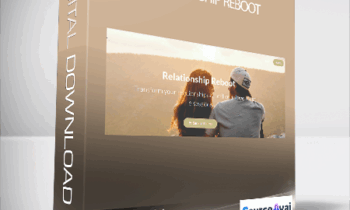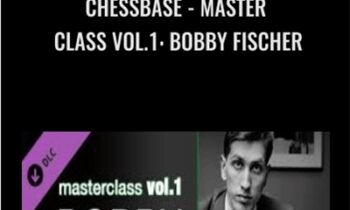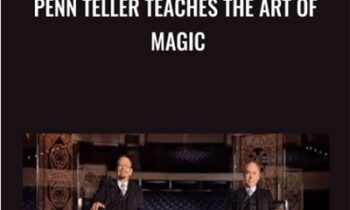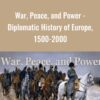War, Peace, and Power – Diplomatic History of Europe, 1500-2000 – Vejas Gabriel Liulevicius
Original price was: $199.95.$38.00Current price is: $38.00.
In StockFor much of the past five centuries, the history of the European continent has been a history of chaos, its civilization thrown into turmoil by ferocious wars or bitter religious conflicts—sometimes in combination—that have made and remade borders, created and eliminated entire nations, and left a legacy that is still influencing our world.
Description
Accelerate your learning with the War, Peace, and Power - Diplomatic History of Europe, 1500-2000 - Vejas Gabriel Liulevicius course, priced at just Original price was: $199.95.$38.00Current price is: $38.00. on ESYSGB.com! Explore our extensive catalog of over 60,000 downloadable digital courses across Uncategorized. Experience flexible, self-paced learning from experts and save over 80%. Empower your future today!
For much of the past five centuries, the history of the European continent has been a history of chaos, its civilization thrown into turmoil by ferocious wars or bitter religious conflicts—sometimes in combination—that have made and remade borders, created and eliminated entire nations, and left a legacy that is still influencing our world.
Is there an explanation for this chaos that goes beyond the obvious: political ambition, religious intolerance, the pursuit of state power, or the fear of another state's aspirations? Can we discover a hidden logic that could possibly explain the Thirty Years' War, the Napoleonic Wars, two World Wars, and other examples of national bloodletting? Is it possible to formulate a meaningful rationale against which to order a history as tumultuous as Europe's, gaining insights that enrich our understanding of Europe's past and future, and perhaps even of ours as well?
In War, Peace, and Power: Diplomatic History of Europe, 1500–2000, Professor Vejas Gabriel Liulevicius answers these questions and more as he offers everyone interested in the "why" of history a remarkable look into the evolution of the European continent and the modern state system. In 36 provocative lectures, he allows us to peer through the revealing lens of statecraft to show us its impact on war, peace, and power and how that impact may well be felt in the future—an approach that historians have been using for thousands of years.
"Diplomatic history is one of the oldest varieties of historical analysis," Professor Liulevicius notes. "Indeed, it's sometimes traced back all the way to Thucydides and the vision that he offered of Greek state interaction and politics.
"Diplomatic history offers a tremendously powerful intellectual tool to understand how states relate to one another. Because states are still relating with one another today, it is of undiminished relevance for our own times. …
"As we conclude our course, we'll be able to ask, 'Where is Europe headed today, and what implications will follow for the world at large?' as we survey what had begun as a European state system [but which] has now become a global system of states in international politics."
Learn How Europe's Most Pivotal Moments Shaped History
Far more than just a history of ambassadorial missions and other diplomatic efforts, this course re-creates Europe's most pivotal historical moments—in the context of their times—showing how contemporary pressures and historical precedent combined to influence individuals, governments, structures, and even non-state organizations.
These events would happen not only on history's bloodiest battlefields but also in quieter settings where so many of the factors that would govern Europe's future would be set into place:
- You'll see how the 1648 Treaty of Westphalia, negotiated at the first great diplomatic conference of modern times, not only brought to a close the ordeal of the Thirty Years' War but also overthrew existing ideals and claims of universal authority to create the European system of independent sovereign states, setting into motion new concepts of international law that would codify the new politics of power.
- You'll experience the dawn of Europe's "classical balance of power," as the 1815 Congress of Vienna—amidst the exuberance and glitter of great balls and banquets—responds to the defeat of Napoleon with its creation of the so-called Concert of Europe, a new order opposed to revolution and based on conservative solidarity that would keep Europe from general war for nearly a century.
- And you'll be in Paris in 1919 for the aftermath of the shattering of the Concert of Europe, as the victorious allies gather to draft a comprehensive Paris Settlement—including the Treaty of Versailles—meant to build a new and lasting European order on the ruins of the old.
Each of these key points on history's timeline represents an attempt to establish a lasting idea of order in the European world, a task with which Europe's states have been wrestling since the birth of modern diplomacy in Renaissance Italy.
Explore the Dynamics of International Politics
In examining how these and other attempts have succeeded or failed, Professor Liulevicius offers a key to understanding the dynamics of international politics, as well as how such key concepts as the balance of power, power itself, sovereignty, and "reason of state"—the raison d'état first enunciated by France's powerful Cardinal Richelieu—fit into those dynamics. There's even a fascinating discussion on the implications of instantaneous communications technology—not only for the practice of diplomacy, but also for whether that technology makes diplomats themselves more important or less so; historians line up on both sides of the debate.
Beginning with a snapshot of where Europe stood at the dawn of the 16th century, Professor Liulevicius weaves his analysis of statecraft into a vast tapestry of international history.
It's a tapestry that includes not only 500 years of military outcomes, the long-term impact of their settlements, and the "grand strategies" of which they were a part but also the many issues against which statecraft and diplomacy cannot help but brush. These include peacemaking; international law; the passions—even wars—so often brought about by intractable religious differences; the defense of human rights and minorities, including the abolition of slavery; the efforts of international organizations like the Red Cross; the challenges smaller states face when trying to implement foreign policy; and the efforts at achieving a stable European order that have culminated in today's European Union.
Throughout these lectures, as great and small states feint and clash, as ambitions are realized or thwarted, and as Europe's map is drawn and redrawn several times over—very often in blood—Professor Liulevicius returns to several key themes that tie together this wide-ranging array of material:
- How earlier experiences and precedents influence later maneuvering, and the ways in which geopolitical problems that have persisted across the centuries have helped shape the world we live in today
- How elusive the pursuit of the goal of stability can be in an international arena marked by constant change
- How diplomatic methods, customs, protocols, and approaches can sometimes be as important as the actual substance of international questions and their solutions
- How critical the impact of the evolving concept of Europe itself is on those participating in this five-century diplomatic drama.
Get War, Peace, and Power – Diplomatic History of Europe, 1500-2000 – Vejas Gabriel Liulevicius, Only Price 42
Vivid Images of the Actors Who Shaped Europe
Educated not only in the United States but also in Denmark and Germany—with award-winning teaching skills, tremendous experience in the subject matter of this course, and a wonderful command of both the visual and audio media—Professor Liulevicius creates vivid images of the figures whose actions, whether overt or subtle, onstage or off, helped shape the Europe we know today, including:
- Prince Klemens von Metternich, the masterful Austrian diplomat known as the "Coachman of Europe," who presided over the Congress of Vienna and orchestrated many of its results
- Charles-Maurice de Talleyrand, the French statesman sometimes called the greatest of diplomats, but whose skills at political survival and reputation for duplicity reportedly led Metternich to remark, when informed of Talleyrand's death, "I wonder what he meant by that?"
- German Chancellor Otto von Bismarck, the brilliant, pragmatic, and ruthless inventor of Realpolitik—the "politics of realism"—who spearheaded German unification under Kaiser Wilhelm I but whose complex arrangement of interlocking alliances could not survive his absence after his dismissal by the brash young Kaiser Wilhelm II
- French Prime Minister Georges Clemenceau, "the Tiger," who represented his nation during the Paris Settlement and who was so devoted to French security that legend has it he requested his corpse be buried standing up and facing the Germany he so deeply mistrusted, the better to give warning if need be
- Vladimir Ilyich Lenin, the exiled Russian revolutionary whom the German high command shipped from neutral Switzerland back to Russia by train in order to infect the new Russia with revolution—with Lenin's train car "sealed" and closely guarded to protect Germany from his dangerous ideas
- George F. Kennan, the American historian and diplomat whose famous 1946 "Long Telegram" from Moscow and anonymous 1947 article in Foreign Affairs magazine became the intellectual foundation of the United States' policy of "containment" of the Soviet Union.
As War, Peace, and Power: Diplomatic History of Europe, 1500–2000 underscores, the impact on history of each of these figures—along with many others—was profound. But as Professor Liulevicius notes, our own impact as citizens, even if less momentous, can also be critical.
"Public involvement in and knowledge of foreign affairs—whether by ordinary citizens taking out a passport to travel, or seeking understanding of the past as well as the present in its diplomatic dimension—all of this is perhaps also a diplomatic act of participation and promise for the future.
"This is an undertaking open to all of us: to seek to understand diplomatic history in its past and present as we seek to understand the scourge of war, even when it seems necessary; the profound gift of true peace, when it's achieved; and the potentiality—as well as the perils—of the use of power."
36 lectures
| Average 31 minutes each
1 Foundations of Diplomacy
2 Europe in 1500—Ancient and New Monarchies
3 Renaissance Statecraft in Italy
4 Religion and Empire
5 The Thirty Years' War
6 The Peace of Westphalia, 1648—A New Era
7 French Superpower
8 The Great Powers
9 Northern Earthquake
10 18th-Century Competition
11 Revolutions
12 Napoleon's Glory and Defeat
13 The Congress of Vienna
14 The Concert of Europe System
15 Eastern and Western Questions
16 The Challenge of 1848 and Napoleon III
17 Britain's Empire
18 The Crimean War
19 Italian Unification
20 German Unification
21 The Bismarckian System
22 High Imperialism
23 The Reconfigured World of 1900
24 Balkan Instability
25 The Outbreak of World War I
26 World War I—Total War
27 The Paris Settlement
28 Interwar Europe
29 Europe into Crisis
30 World War II
31 Aftermath and Peace Plans
32 The Cold War Begins
33 Blocs and Decolonization
34 The European Project
35 The Fall of the Wall
36 Post–Cold War to the Present
Get War, Peace, and Power – Diplomatic History of Europe, 1500-2000 – Vejas Gabriel Liulevicius, Only Price 42
Tag: War, Peace, and Power – Diplomatic History of Europe, 1500-2000 – Vejas Gabriel Liulevicius Review. War, Peace, and Power – Diplomatic History of Europe, 1500-2000 – Vejas Gabriel Liulevicius download. War, Peace, and Power – Diplomatic History of Europe, 1500-2000 – Vejas Gabriel Liulevicius discount.
Build a robust future with the War, Peace, and Power - Diplomatic History of Europe, 1500-2000 - Vejas Gabriel Liulevicius course at ESYSGB.com! Gain lifetime access to high-impact digital content, meticulously designed to boost your career and personal growth.
- Lifetime Access: Permanent and unlimited access to your purchased courses.
- Exceptional Savings: Enjoy discounts of up to 80% off original prices.
- Secure Payments: Your transactions are fully protected and safe.
- Practical Knowledge: Acquire actionable skills for immediate application.
- Instant Availability: Start learning right after completing your purchase.
- Cross-Device Access: Study seamlessly on any desktop, tablet, or mobile device.
Unlock your potential with ESYSGB.com!
Only logged in customers who have purchased this product may leave a review.





![War, Peace, and Power - Diplomatic History of Europe, 1500-2000 - Vejas Gabriel Liulevicius - eSys[GroupBuy] War, Peace, and Power - Diplomatic History of Europe, 1500-2000 - Vejas Gabriel Liulevicius](https://esysgb.com/wp-content/uploads/2021/06/Vejas-Gabriel-Liulevicius.jpg)




Reviews
There are no reviews yet.